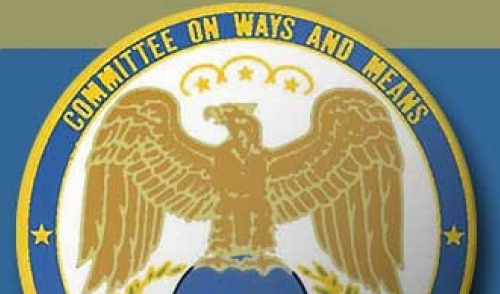eyeforpharma Philadelphia 2014
Make customer centricity work: smart pharma mindsets, models and technology that will seal commercial success
Pfizer Seeks Capitol Hill Support Against ‘Protectionist’ India
Pfizer has become the first pharma company to call on the U.S government to “review all available policy tools” in the battle against what it has termed the “protectionist” regime in India, ahead of a renewal of Indian trade benefits in July.

Pfizer’s chief intellectual property counsel, Roy Waldron, appeared in front of the Committe of Ways and Means subcommittee to protest against some of India’s recent policies, which he characterized as favoring domestic drugmakers over multinationals. As quoted by Reuters, Waldron claimed that “India has essentially created a protectionist regime that harms U.S job creators,” citing a litany of recent cases of suspended patents and compulsory licenses that have plagued international pharma companies operating in India. Last year Pfizer had its patent revoked for its cancer med Sutent, and soon after that Roche’s Hep C medication Pegasys suffered the same fate. India has already issued one compulsory license allowing local firm Natco Pharma to manufacture a generic version of Bayer’s cancer drug, Nexavar, and three more compulsory licenses are planned for Roche’s Herceptin and two of Bristol Myers-Squibb’s cancer meds. On top of this, the Indian Health Ministry stated last year that it will no longer be issuing any new licenses for the sale of branded Fixed Dose Combination (FDC) drugs, which will instead have to be submitted under their generic names, driving the price down significantly.
The trade benefits up for renewal are part of the Generalized System of Preferences (GSP) program, which waives duties on imports from developing countries to help with job creation. Rep. David Nunes (R-CA), chairman of the subcommittee, recognized the vast growth potential for U.S companies in the Indian pharma market, and stated his intention (as quoted by Reuters) “to ensure that U.S. job creators can compete there on a level playing field.” Arvind Subramanian, a senior fellow at the Peterson Institute for International Economics, commented that removing India from the GSP program as a punitive measure may worsen the relationship between the two countries while failing to accomplish the desired change in behavior; instead he suggested challenging more of India’s policies in the WTO as a better (if more time-consuming) option.
Indian officials and public health advocates say the prices of Big Pharma’s lifesaving drugs are too high, and are unaffordable to most Indians. International pharmacos have countered by stressing the need for IP protection, which provides the best incentive for future innovation. Recent figures show that the Indian pharmaceutical market is expected to grow at a compound annual growth rate (CAGR) of 12% during the 2011–2015 period, leaving firms with a difficult decision over whether to invest in this high-potential yet volatile market. Pfizer’s latest attempt to harness the power of Capitol Hill may succeed in changing India’s behavior; if not, Big Pharma will be left with a difficult decision over how to proceed in one of the world’s biggest pharmerging markets.
eyeforpharma Philadelphia 2014
Make customer centricity work: smart pharma mindsets, models and technology that will seal commercial success
